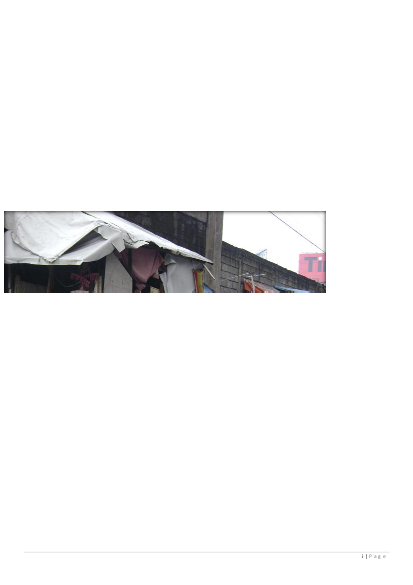
The evaluation was conducted in August and September 2010, almost one-year after the exceptionally heavy rainstorm, Ketsana flooded large parts of Metro-Manila, affecting at least 373,675 families. The lead evaluator completed a comprehensive desk review, skype and phone interviews with UK staff and a survey with sixteen respondents from partners and Christian Aid. In addition, ten days of field visits were conducted by the two person field team with focus group discussions, semi-formal interviews and participative observation the dominant methodologies. Although, communities differed in context, there was considerable convergence in findings. Christian Aids response to the September 2009, Typhoon Ketsana is currently growing into the country programme.
This evaluation covers the first year of the response including both relief and early recovery interventions. These interventions were funded by the DEC, ACT, HEKS and Embassy of Japan. Manila is at risk from many significant hazards especially storms and earthquakes. It is densely populated with large differences between the rich and the poor, amongst which are at least 4.7 million living in informal settlements, on land which is not their own. Land tenure and the ability to make a decent living, with aspirations to the minimum wage, are the priorities of those met during the evaluation. Ketsana has changed attitudes of people and institutions towards flooding opening up a window of opportunity to address underlying causes of risk. However, despite a long awaited change in the Philippines disaster management law, this opportunity has not as yet translated into action. Christian Aid’s relief and early recovery programme was largely service delivery orientated in design and had an impact on about 2.3% of families affected. Considering logistical costs, almost half of the money was spend on food and non-food item distributions, one-quarter on livelihoods (including CFW activities) and one-fifth on providing materials for shelter repairs. Of these activities, the long-term livihoods and cash for work activities were most valued by communities, partners and Christian Aid. The food distribution was least valued.
Additional Downloads
Resource collections
- Cyclones, hurricanes & typhoons
- Evaluating humanitarian action
- Floods
- Learning from crises
- Monitoring of humanitarian action
- Topics
- UN Habitat - Urban Response Collection
- Urban Response - Urban Crisis Preparedness and Risk Reduction
- Urban Response Collection - Community Engagement and Social Cohesion
- Urban Response Collection - Economic Recovery
- Urban Response Collection - Environment and Climate Change
- Urban Response Collection - Housing, Land and Property
- Urban Response Collection - Urban Crisis Response, Recovery and Reconstruction
- Urban Response Collection - Urban Resilience
